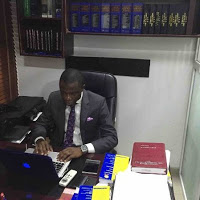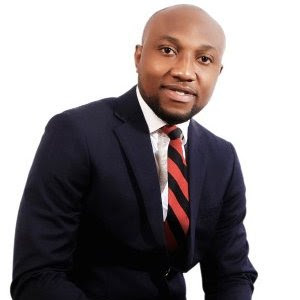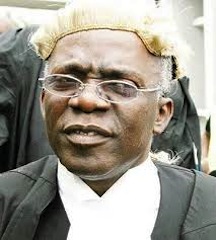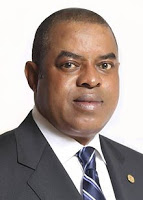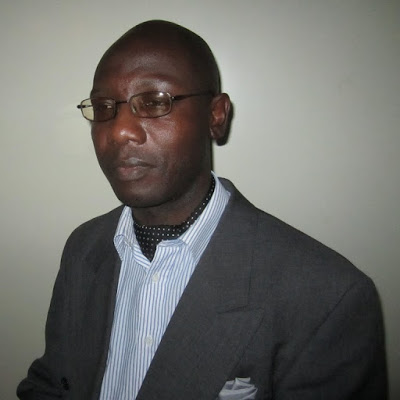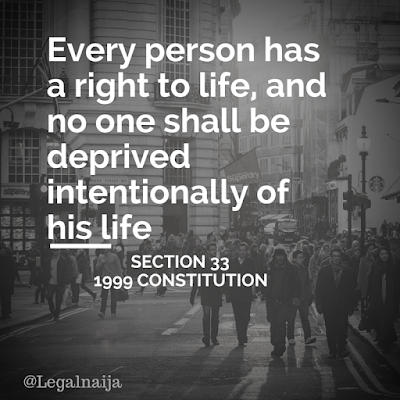In order to ensure the
smooth running of the government the Constitution has conferred immunity on the
heads of the executive. A couple of laws have equally granted immunity to
members of the judiciary and the parliament. However, the proposal of the Senate
to confer absolute immunity on the heads of all legislative houses in the
country and the recent freezing of the bank account of Mr. Ayo Fayose, Governor
of Ekiti state by the Economic and Financial Crimes Commission (EFCC) have
re-opened the debate on the propriety of retaining the immunity clause in the
Constitution.
This paper contends that
no public officer is entitled to absolute immunity as the beneficiaries of the
immunity clause may be sued in their official capacity or made nominal parties
in criminal proceedings. They may also be sued to defend their elections either
in court or election petition tribunals or charged with crimes against humanity
and genocidal acts before the international criminal court at The Hague. In
conclusion, the Nigerian people are called upon to demand for the abolition of
immunity in the struggle for public accountability and transparency.
Genesis of sovereign
immunity
The doctrine of sovereign
immunity is of antiquity. It is basically founded on the anachronistic legal
principle of rex non potest peccare (the king can commit no wrong). As the king
enjoyed absolute immunity he could neither be impeded in his own courts nor
subject to any foreign jurisdiction. Maneleus of Sparta confirmed that the king
was above the law of the Realm, when he said “when a king takes spoils, he robs
no one; when a king kills, he commits no murder, he only fulfils justice.”
Under the feudal system of
government the king was equated with the State. Hence Louis XIV of France once
declared “I am the State”. Although the absolutist powers of the king were
swept away by the Glorious Revolution in England the immunity of the Crown was
left intact. Thus, by virtue of the Crown Proceedings Act the king was totally
absolved of vicarious liability with respect to the tortious acts of his agents
or servants. See Roper V. Public Works Commissioner (1905) I.K.B. 45. The Crown
Proceedings Ordinance, the Petition of Rights Ordinance, the Public Officers
Protection Ordinance etc which embodied the essentials of state immunity were
imposed on Nigeria by the British colonial regime. Consequently, Nigerians were
unable to sue the British Government for the massive violations of their rights
and the criminal diversion of the wealth of the country under colonial rule.
Even though the Crown
Proceedings Act was abolished in England in 1947 its ghost continued to haunt
Nigeria several decades after independence. For instance, the law was invoked
to cover up the atrocities perpetrated by the armed soldiers who destroyed the
Ransome-Kuti family house at Idi Oro, Lagos on February 18, 1977. Thus, in
Chief (Mrs) Olufunmilayo Ransome Kuti Vs. Attorney-General of the Federation
(1985) 2 NWLR (PT 6) 211 at 236-237 the Supreme Court held that the federal
government was not vicariously liable for the arson and willful damage to
property carried out by its armed agents. But the apex court took advantage of
the case to declare that section 6 of the Constitution has abolished the
anachronism of state immunity.
Apart from the Crown
Proceeding Act which was annulled in the Ransome-Kuti’s case a number of other
laws which preserved state immunity have either been declared illegal or
whittled down by Nigerian Courts . But in spite of the abolition of state
immunity the Constitution has conferred immunity on the heads of the executive
arm of government during their terms of office. Under the defunct military
dictatorship the absolute immunity of military dictators was preserved in the
supremacy decrees. Specifically, the Constitution was suspended while the
jurisdiction of the courts was ousted with respect to anything done or
purported to have been done by the military dictators.
In Femi Falana & Ors v
General Ibrahim Babangida the plaintiffs sued the defendant to justify the
unilateral dissolution of the Armed Forces Ruling Council, the ruling body
under the military junta at the material time. In striking out the case for
want of locus standi the trial judge, the late Ligali Ayorinde C.J. described
the military president as the “kabiyesi” of the country as he was not
accountable to anyone or institution in the country. But the judge failed to
appreciate that the “kabiyesi” in the Oyo empire could be removed if he was
found to have committed grave crimes against the people.
The purpose of immunity
for public officers
The sole justification for
immunity is that the heads of state and government should enjoy absolute
immunity to enable them to perform official duties without distractions. In
other words, such public officers should not be harassed or distracted in the
performance of their duties by fear of civil or criminal litigation. By virtue
of Section 308 (1) of the 1999 Constitution “no civil or criminal proceedings
shall be instituted or continued against the President, Vice President,
Governors and Deputy Governors during their period of office.” The implication
of the immunity clause is that any of the persons to whom the section applies
shall not be arrested or imprisoned either in pursuance of the process of any
court or otherwise and no process of any court requiring or compelling the
appearance of the person shall be applied for or issued.
However, the provision of
the immunity clause shall not apply to civil proceedings against the public
officer in his/her official capacity or to civil or criminal proceedings in
which such a person is only a nominal party. Cases filed before the assumption
of office of public officers covered by the immunity clause are stayed to await
the expiration of their tenure. See the cases of Col. Oluwole Rotimi Vs.
Macregor (1974) NSCC 542; Bola Tinubu Vs. I.M.B. Securities Ltd. (2001) 11 WRN
27; (2001) 16 NWLR (PT 740) 670 and Media Technique Nig. Ltd. Vs. Lam Adesina
(2004) 44 WRN 19. Paradoxically, public officers protected by the immunity
clause are not precluded from instituting civil proceedings during their term
of office.
In Olabisi Onabanjo Vs.
Concord Press of Nigeria (1981) 2 NCLR 349 the Defendant challenged the libel
suit filed by the Plaintiff on the ground that he was excluded from being sued
during his term of office as the governor of Ogun State. In dismissing the
preliminary objection Kolawole J. (as he then was) held that even through a
governor could be sued he was not precluded from instituting and maintaining an
action in Court. See also the case of Aper Aku Vs. Plateau Publishing Company
Ltd. (1985) 6 NCLR 338 and Chief D.S.P. Alamieyeseigha Vs. Teiwa & Ors.
(2001) 33 WRN 144.
With respect, it is
submitted that if those covered by the immunity clause can institute libel
suits or enforce other rights it is unjust to prevent other persons from suing
them while in office. As there is equality before the law it is grossly unjust
to allow public officers covered by the immunity clause to institute civil
suits when their opponents are precluded from suing them by issuing or serving
court processes on them. The injustice in the discriminatory practice becomes
apparent when it is realized that the defendants cannot appeal against the
cases if they are decided in favour of the public officers.
Judicial immunity
By virtue of secion 6 of
the Constition the judicial powers of the State are veted in judges. Such
powers shall be exercised by judges without fear of favour. The law
establishing each of courts provides that judges shall not be held liable for
any act done in the discharge of their duties. In other words judges cannot be
subject to civil or criminal proceedings on account of negligence or errors
made in the course of discharging their functions. Litigants who are
dissatisfied with the decisions of judges have the right to appeals to higher
courts for redress. However, the National Judicial Council is empowered to
investigate allegations of misconduct against judges and recommend appropriate
sanctions to the appointing authorities.
In order to deal with
allegations of judicial corruption judges who were found to have engaged in
misconduct have been removed from the bench. According to the Chief Justice of
Nigeria, the Honourable Justice Mahmud Mohammed, not less than 54 judges have
been compulsorily retired or dismissed from office from 1999-2016. Two Senior
Advocates of Nigeria who are alleged to have bribed three judges are currently
standing trial at the Lagos high court. Since it takes two to tango the judges
who allegedly received the bribes from both senior lawyers should not be spared
from criminal prosecution.
Legislative immunity
The Legislative Powers and
Privileges Act has conferred limited immunity, powers and privileges on the
members of the national assembly in the performance of their legislative
duties. Specifically, they are immune from civil or criminal proceedings in
respect of deliberations and comments made by them in course of proceedings in
the parliament. In view of the controversy which has trailed the arraignment of
the leaders of the Senate it is pertinent to point out that the privileges and
immunity conferred on the legislators cannot shield them from prosecution for
criminal offences. Indeed, under section 25 (1) of the Act, any person who
causes to be printed a copy of any Act or law, report, paper, minutes or votes
or proceedings of a legislative house shall be guilty of an offence and shall
be liable on conviction to a fine of two hundred Naira or imprisonment or 12
months imprisonment or to both such fine and imprisonment.
Furthermore, no
prosecution shall be instituted for any offence committed under the Act except
by the Attorney-General of the Federation (AGF) upon information given to him
by the President of the Senate or the Speaker of the House of Representatives
.With respect to the alleged forgery of the Senate Rules which occurred
sometime last year the Senate President did not report the matter to the AGF.
Since the Senate President failed to perform his statutory duty in the
circumstance, the AGF decided to file the charge the four defendants with
conspiracy and forgery under the Penal Code applicable in the Federal Capital
Territory.
Although Nigerian
legislators have not been conferred with absolute immunity the Senate believes
that its leaders are above the law of the land. Hence, the Chairman of the Code
of Conduct was recently summoned to justify the trial of the Senate President,
Dr Bukola Saraki on the allegation of false declaration of assets. Although the
Senate withdrew the illegal summons based on negative public reaction it has
invited the Attorney-General of the Federation to appear before the senators to
explain the rationale for filing criminal charges against the senate president,
deputy senate president and two legislative staff. Since the senate is
prohibited by its own rules from debating any matter which is sub judice the
decision of the Attorney-General, Mr. Abubakar Malami SAN, to treat the summons
with disdain cannot be faulted.
It ought to be pointed out
that not even the court not even the court can question the Attorney-General in
the exercise of his powers to charge any criminal suspect to court pursuant to
section 174 of the Constitution. In The State v Ilori & Ors (1983) 1 SCBLR
94, the Supreme Court held that the powers of the Attorney-General are a matter
for his quasi-judicial discretion and one within his complete province as he
possesses ”the constitutional powers in full and the responsibility for any
decision thereupon rests solely on him.” The apex court proceeded to state that
“a person who has suffered from the unjust exercise of his powers by an
unscrupulous Attorney-general is not without remedy; for he can invoke other
proceedings against the Attorney-General. But certainly, his remedy is not to
ask the court to question or review the exercise of the powers of the
Attorney-General.” Since the Senate lacks the vires to summon the
Attorney-General to partake of a debate on a matter that is sub judice the
illegal summons should be formally withdrawn without any further delay.
Instead of writing protest
letters to regional and international organisations as well as embassies of
countries which operate under the rule of law with emphasis on equality of
citizens before the law the defendants are advised to follow the principle laid
down by the Supreme Court in the case of The State v Ilori & Ors (supra).
More importantly, to prevent the political manipulation of the Attorney-General
by the executive the national assembly may wish to take advantage of the
planned constitutional review to ensure that section 174 of the Constitution is
amended to separate the office of the Attorney-General from that of the
Minister of Justice.
Immunity and electoral
disputes
In order to actualise the
equality of the rights of all contestants in a presidential or governorship
elections it has been held by the Supreme Court that immunity cannot be invoked
in election petitions. Otherwise, public officers to whom immunity applies may
take advantage of their positions to rig elections and threreby sabotage the
democratic process. The rationale for suspending the operation of the immunity
clause during the hearing of election petition was explained by the late
Justice Kayode Eso in Obih Vs. Mbakwe (1984) All NLR 134 at 148 when he said,
“With respect, to extend the immunity to cover the governors from being legally
challenged when seeking a second term will spell injustice.”
Similarly, in Turaki v.
Dalhaltu(2003) 38 WRN 54 at 168 the Court of Appeal (per Oguntade JCA (as he
then was) held that “If a Governor were to be considered immune from court
proceedings, that would create the position where a sitting Governor would be
able to flout election laws and regulations to the detriment of other person
contesting with him. This will make a nonsense of the election process and be
against the spirit of our national Constitution which in its tenor provides for
a free and fair election.” See Amaechi v INEC (2008) 5 N.W.L.R (Pt 1080) 227;
Baido v INEC (2008) 12 N.W.L.R (Pt 1101) 379.
In the case of the
Alliance for Democracy v. Peter Ayodele Fayose (No 1) (2004) 26 WRN 34 the
respondent challenged the issuance of a subpoena on him on the ground that
Section 308 has conferred immunity on him as a governor. While dismissing the
objection the Court of Appeal (per Muri Okunola JCA) held: “… the immunity
provided by the provisions of section 308 of the Constitution of the Federal
Republic of Nigeria 1999 on a State Governor is put in abeyance when his
election is being disputed before an Election Tribunal as to make him amenable
to being compelled by a subpoena to tender document(s) or give evidence before
the Election Tribunal.”
In recent time, there are
election related proceedings that have been filed against heads of government
despite the immunity clause in Section 308 of the Constitution. It is on record
that majority of the governors were respondents in several election petitions
arising from the 2015 general elections. Although the elections petitions have
been concluded a pre-election in which President Buhari was a defendant has
just been discontinued by the Plaintiff while the case against the governor of
Cross River state has been dismissed on the ground that the allegation of
falsification of age was not proved beyond reasonable doubt. Two pre-election
cases which are still pending against Governor Bagudu of Kebbi state and
Governor Okezie Ikpeazu of Abia state.
Immunity and criminal
investigations
Two weeks ago, the EFCC
traced N1.2 billion criminally diverted from the Office of the National
Security Adviser to a Zenith bank account belonging to the Ekiti state
governor, Mr Ayo Fayose. As soon as he learnt that the account was under
investigation Mr. Fayose invaded one of the branches of the bank at Ado Ekiti
with armed gendarmes and demanded for the withdrawal for the balance of N500
million in the account. To prevent the governor from transferring the fund the
EFCC froze it. and later obtained an ex parte order of interim seizure. In
challenging the action of the EfCC the governor said that his immunity had been
violated. Convinced that he had been betrayed by the bank Mr. Fayose said that
the money was actually donated by the bank to his campaign. As I have argued
elsewhere the action of the EFCC cannot be impugned having regard to the
combined effect of sections 28 and 34 of the Efcc Act as well as section 308 of
the Constitution.
However, assuming without
conceding that the bulk of the fund spent on his campaign was donated by Zenith
Bank Plc the governor has unwittingly justified the investigation and freezing
of his account by the EFCC. He has also confirmed that the humongous sum of
money was transported from Abuja to Akure in contravention of the Money
Laundering Act. By his utterances, Mr. Fayose is simply saying that the
management of Zenith bank stole depositors’ money and laundered it to fund his
political campaign contrary to section 90 of the Electoral Act, 2010 as
amended. On the basis of his own confessional statement, Governor Fayose and
the management of the bank are liable to be prosecuted for electoral fraud,
money laundering and criminal diversion of depositors’ fund to the tune of N1.2
billion. Therefore, whether it is public money stolen from via the office of
the NSA or depositors’ fund through the bank the decision of the EFCC to freeze
Mr. Fayose’s account is perfectly in order.
In Gani Fawehinmi vs.
Inspector General of Police (2002) 23 WRN 1 the Supreme Court held that
although public officers covered by the immunity clause cannot be arrested or
prosecuted they are not excluded from investigation for corruption and other
criminal offences. It was the view of Uwaifo JSC “The evidence may be useful
for impeachment purposes if the House of Assembly may have need of it. It may
no doubt be used for prosecution of the said incumbent Governor after he has
left office. But to do nothing under pretext that a Governor cannot be
investigated is a disservice to the society.”
Curiously, the interpretation
of the immunity clause was limited to section 308 (1) of the Constitution. It
is doubtful if the Supreme Court would have maintained the same stand if its
attention had been drawn to Section 308 (2) thereof where it is expressly
provided that a public officer protected by the immunity clause can be
subjected to “criminal proceedings in which such a person is only a nominal
party”. This means, in effect, that a public officer who enjoys immunity can be
made a defendant in a nominal capacity in criminal proceedings . In FRN v
Dariye (2011) 13 N.W.L.R (Pt 1265) 521, the Court of Appeal dismissed the
charges against the appellant, a sitting governor at the material time on the
ground that he was made a principal party in the criminal case. According to
Tur J.C.A:
“Learned counsel to the
appellant ought to have seen the impracticability, futility and absurdity of
instituting criminal proceedings against Chief Joshua Chibi Dariye either as
the Governor of Plateau State or in his name since he is not a nominal party
under section 308 (2) of the Constitution but the principal offender alleged to
have conspired with the other co-accused persons to commit the offences.”
Investigation of corrupt
practices involving heads of government by independent counsel
By virtue of section 52 of
the ICPC Act the Chief Justice of Nigeria is empowered to appoint an
Independent Counsel, who shall be a legal practitioner of not less than 15
years standing, to investigate any allegation of corruption against the
President, Vice President, Governor or Deputy Governor. At the end of such
investigation the Independent Counsel is required to make a report of the
findings available to the National Assembly or the House of Assembly of a State
as the case may be for the impeachment of the indicted officer.
When Justice M.A. Akanbi
was the ICPC Chairman he caused the commission to submit about about 20
applications to the Chief Justice of Nigeria seeking for the appointment of
Independent Counsel to investigate allegations of corruption against some
sitting governors. None of the applications was granted on the ground that
there was no budget for the office of the independent counsel! Instead of
applying for an order of mandamus to compel the Chief Justice to carry out his
statutory functions under the ICPC Act the case files were reportedly withdrawn
by the ICPC. Thus, section 52 of the ICPC Act has not been tested for the past
16 years.
Plea of immunity by state
governments
Recently, the
Attorney-General of the Federation (AGF) requested the efcc to investigate a
complaint alleging the criminal diversion of N11 billion from the coffers of
the Rivers state government. In a letter addressed to the AGF which has since
been advertised in some national dailies. In the letter the Rivers AG challenged
the competence of the AGF to direct the efcc to investigate the allegation of
the missing fund. Without missing words, the AGF was asked to leave the
suspected looters alone as the money alleged to have been criminally diverted
is owned by the Rivers state government. In support of his strange submissions
the Rivers state AG cited a couple of cases decided by the federal and state
high courts.
With respect, the
decisions relied upon by the Rivers states AG do not represent the correct
state of the law with respect to public accountability in Nigeria.
Incidentally, the Rivers state government was one of the defendants in the case
of AG, Ondo State v AGF wherein the Supreme Court had held that ” generally
speaking, power to prosecute for an offence is not determined by the ownership
of the property allegedly stolen or misappropriated and that the determining
factors are: (i) Who can exercise prosecutorial powers, (ii) The nature of the
offence and, (iii) Where the offence was committed-the venue. In Dariye v FRN
(2015) 10 N.W.L.R. (Pt 1467) 325 the Supreme Court reiterated the principle
when it held that “the owner of the subject matter of the charges is
immaterial. What is material is that a Federal enactment has been violated.”
It view of the fact that
the efcc has been asked by the AGF to investigate the alleged violation of
relevant federal enactments with respect to stolen funds belonging to the
Rivers state government it is hoped that the state AG will advise the suspects
involved to cooperate with the anti graft agency in the circumstance. Having
regard to the categorical pronouncements of the apex court in the AG, Ondo
state v AGF (supra) and FRN v Fariye (supra) the ownership of the alleged
missing sum of N11 billion is of no moment.
waiver of immunity
Realizing that the war
against corruption could not be meaningfully prosecuted as long as some public
officers were immune from prosecution President Obasanjo campaigned for the
abolision of immunity for heads of government. In 2001, he waived his immunity
and appeared before the Oputa Commission in response to the petition of Dr.
Beko Ransome Kuti. The allegation was that it was the military regime headed by
him which had authorised the violent destruction of Fela Anikulapo-Kuti’s
residence on February 18, 1977.
However, the other
ex-military dictators refused to appear at the panel of inquiry. In fact, one
of them successfully challenged the summons served on him in Fawehinmi v
Babangida. In setting aside the summons the Supreme Court held that the
Commission could not compel the attendance of any witness and that the federal
government had no power to set up a commission of enquiry outside the federal
capital territory.
Limitation of immunity
under international law
It is submitted that the
immunity conferred on state governors by the Constitution is not applicable
outside the territory of Nigeria as only the President is entitled to sovereign
immunity under customary international law. The case of R. (on the application
of Alamieyeseigha) v Crown Prosecution Service [2005] EWHC 2704 (Admin) is
relevant in this regard. In September 2005, following investigations by the
Proceeds of Corruption Unit of the Metropolitan Police in the United Kingdom
and the Economic and Financial Crimes Commission (EFCC), Chief D.S.P
Alamieyeseigha was arrested in London, questioned and charged with three counts
of money laundering.
A world-wide criminal
restraint order was obtained by the Crown Prosecution Service over his assets.
He then sought to quash the decision to prosecute him in London on the grounds
that, as a result of his position as Governor and Chief Executive of the State
of Bayelsa, he was entitled to state immunity in criminal proceedings brought
in the United Kingdom. The argument was rejected by the trial judge who held
that as a governor of state which is a constituent part of Nigeria, the
applicant was not entitled to sovereign immunity in respect of criminal
proceedings brought in the United Kingdom.
In FRN v Joshua Dariye
(2007) S.R (D) 179, the plaintiff filed a forfeiture proceeding against the
defendant in a British court in February 2007. The defendant who was then a
governor in Nigeria applied for a stay of proceedings or transfer of the case
to Nigeria on ground of forum conveniens. The objection was dismissed. During
the proceedings the defendant failed to provide an adequate explanation for the
source of his funds and the court ordered that his assets be returned to
Nigeria. The court dealt separately with the defendant’s property and his bank accounts.
However, the Rome Statute
to which Nigeria is a signatory does not recognise the immunity of the
President and state governors. Therefore, if a warrant is issued for the arrest
of any of the Nigerian leader for genocidal acts or crimes against humanity the
immunity conferred on the public officer by the Constitution cannot be
successfully invoked to shield him/her from trial before the International
Criminal Court. When President Omar Bashir of Sudan was in Nigeria last year to
attend an international conference a human rights body filed an action at the
federal high seeking to compel the federal government to arrest the guest and
hand him over to the Special Prosecutor of the ICC for genocide over the
massacre of over 300,000 people in Darfur, Sudan in 2005. As soon as he got
wind of the suit the visiting Sudanese President hurriedly left Nigeria
In the Minister of Justice
and Constitutional Development & Ors v The South Africa Litigation Centre
& Ors (Unreported Case no 867/15) President Al Bashir arrived in South
Africa to attend the African Assembly on June 13, 2015. As the Government took
no steps to arrest him the respondent, the South African Litigation Centre
(SALC), brought an urgent application on Sunday 14 June 2015, in the Gauteng
Division of the High Court, Pretoria seeking orders declaring the failure to
take steps to arrest him illegal. The order issued by the court which directed
the Jacob Zuma government to arrest him was flouted as President Bashir’s plane
was allowed to fly out of the country.
Upon hearing the
substantive matter, the trial judge condemned the government of South Africa
violating its obligations under the Rome Statute as it pertains to the arrest
of President Al Bashir. Dissatisfied with the ruling the government challenged
it on appeal. In dismissing the appeal the Supreme Court Appeal of South Africa
held that “The conduct of the Respondents in failing to take steps to arrest
and detain, for surrender to the International Criminal Court, the President of
Sudan, Omar Hassan Ahmad Al Bashir, after his arrival in South Africa on 13
June 2015 … was unlawful.”
CONCLUSION
Notwithstanding the
absolute immunity conferred on heads of government they may be sued in their
official capacity or made nominal parties in criminal proceedings. In order to
promote accountability and transparency in government and deepen the democratic
process the courts have whittled down the absoluteness of immunity enjoyed by
the heads of government with respect to electoral disputes and criminal investigations.
In the circumstance, the Chief Justice of Nigeria, the police and the anti
graft agencies should carry out their statutory duties by ensuring that
allegations of corrupt practices involving heads of government are probed while
the reports are either submitted the appropriate legislative houses or kept for
the prosecution of the indicted heads of government upon the expiration of
their terms of office.
No doubt, the rising wave
of executive lawlessness in the polity including the rapacious looting of the
treasury by some heads of government has led to an upsurge in the popular
demand for the abolition or removal of the immunity clause from the
Constitution. This disturbing situation was well captured by Tur JCA in FRN v
Dariye (supra) when he said:
“Experience has shown that
the immunity clause in the Constitution has
been abused by many
Governors and Deputy Governors and Nigerians
have been clamouring for
its removal from the Constitution. That has
been the yearnings of
those who want to rid the country of corruption
by persons thrust with the
responsibility of executing governmental
affairs of the Federation
or the States.”
This year alone the
Economic and Financial Crimes Commission has secured over 200 convictions in
respect of cyber crimes, 419, fraud, stealing and other cases. By the standard
of any legal system that is a record achievement. But the public perception is
that the EFCC is not succeeding because the fat cats have remained largely untouchable.
The anti-graft agencies have to devise new methods of fighting the menace of
corruption.
2. The criminal justice
system is successfully manipulated to frustrate trials. Once a big man or woman
is admitted to bail the defence counsel engages in dilatory tactics to wear out
the court and the prosecutor. As far as I am concerned, the EFCC has to go back
to the drawing board. When the EFCC started under Mallam Nuhu Ribadu it was
able to frustrate the rich. Unfortunately, the EFCC was taken over by powerful
criminal suspects in connivance with a former Attorney-General of the
Federation. Under the pretext of fighting corruption under the rule of law they
castrated the EFCC. Mr. Lamorde is just trying to rebuild the organization. It
is going to take some time because the damage is enormous. To arrest the
frustration of cases the EFCC has to go back to section 40 of the EFCC Act
which has abolished stay of proceedings even though the right of appeal is
preserved. There is no civilized country in the world where a criminal trial
can be stayed to await an appeal. Until recently, it was not part of our
criminal justice system. So, we have to restore the sanity of the system in the
overall interest of the society.
4. The Goodluck Jonathan
Administration is a continuation of the Umaru Yaradua Administration. To that
extent, not much has changed in the fight against corruption. However, I don’t
blame any regime for not fighting corruption. For me there are adequate
opportunities within the system to expose and shame corrupt people. A few
individuals and NGOs are taking advantage of openings in the system to expose
corruption. SERAP and others have just lost the move to get the CBN to account
for the mismanagement and diversion of the $12.4 billion the Ibrahim Babangida
junta. We are appealing against the judgment of the Federal High Court. The
CNPP is seeking an order of mandamus to compel the EFCC and ICPC to prosecute
President Olusegun Obasanjo for massive corruption. LEPAD has obtained an order
to compel the National Assembly to disclose the salaries and allowances of
legislators.
5. The Network Against
Corruption has demanded for the removal of some corrupt miniters on account of
corruption. The Coalition Against Corruption Leaders has joined issues with the
Federal and State Government over corrupt practices. On its own part the
Jonathan Administration set up some probe panels which have exposed the
unprecedented sleaze in government. It is left for Nigerians to put the reports
of such panels to maximum use. Many individuals and organizations are making
requests for information under the FOI. The Code of Conduct Bureau has been
sued for refusing to make available the assets of President Jonathan. Both
Chambers of the National Assembly have taken up the challenge of exposing
corruption. In the process legislators who soil their own hands are being
pursued. The EFCC has taken many persons and companies to court over the fuel
subsidy scam.
6. Frankly speaking, most
governments in the world are corrupt. It is the business of the media and other
civil society organizations to expose corruption in government. Before the
creation of the ICPC and EFCC corruption was fought in Nigeria by a few
patriotic individuals aided by the press. We have to go back to that glorious era
in the collective interest of the society. Unlike what obtained under the
Obasanjo regime when the government ordered the killing of innocent people
President Jonathan will not go out of his way to order armed soldiers to
destroy any community. But then, as the Commander-in-Chief of the Armed Forces
he has to check the excesses of the JTFs and restrain them from killing
innocent people in the fight against terrorism. The extra judicial killing of
suspects and other innocent people by the police is on the rise. This has to
stop. The parade of suspects by the police, NDLEA, SSS etc has to stop. The
society has to fight the increasing wave of rape. The discriminatory treatment
of women has to be tackled. The Jonathan Administration has inaugurated the
National Human Rights Commission. I expect a major intervention of that body in
the area of human rights violations. The new council is made up of men and
women of ideas, courage and commitment. There are other institutionalized
mechanism for protecting human rights abuse. The Legal Aid Council, Office of
the Public Defender, Mediation Centres, Public Petition Committees in the
legislative houses, public complaints commission etc. Nigerians should be
mobilized to seek redress in these institutions whenever human rights are
violated.
7. The Yaradua regime paid
lip service to the rule of law. Apart from compliance with a few court orders,
just a few, it was business as usual. The Appropriation Act was not fully
complied as the EFCC was taken over by corrupt elements. Impunity was the order
of the day. And when the President took ill the Attorney-General and a few
other ministers ruled the country by fraud. A supplementary budget was even
forged by the power mongers. The Jonathan Administration has not shown a greater
fidelity to the rule of law. In specific cases some heads of MDAs have been
called to order by the office of the Attorney-General. But institutions like
the NNPC and CBN have ignored requests made under the FOI. The Appropriation
Act is treated with contempt by the government.
6. Both the bar and the
bench in Nigeria have failed to realize the enormity of the crisis of
injustice. Hence reports of committees set up by the ex-CJN and the NJC on the
Judiciary have not been taken seriously. In fact, the judiciary has been much
more serious than the NBA in terms of judicial reforms. Senior lawyers have
become too complacent because they are reaping bountifully from the decadence
of the system. When we had an independent bar Nigerian lawyers once went on
boycott of courts to protest disobedience to one court order. That was under a
military dictatorship. But today disobedience of court orders is the order of
the day. And the NBA is indifferent to the growing culture of anarchy in the
land.
7. The Committee was made
up of retired Chief Justices and former Presidents of the Bar. No consultation
can be greater than that. Regrettably, the NBA is losing its relevance as far
as judicial reforms are concerned. By the way, why should the NBA wait for the
consultation of the CJN? The bar has to be pro-active and take its own
independent decisions and not turn itself into an appendage of the CJN or an
extension of the NJC. Unlike the CJN and NJC the NBA is a non state actor.
Being the paper presented
by Femi Falana at the 60th birthday anniversary of Professor Julius Ihonbere,
Secretary to the Edo state government at Benin City, Edo State on Saturday,
July 2, 2016.


